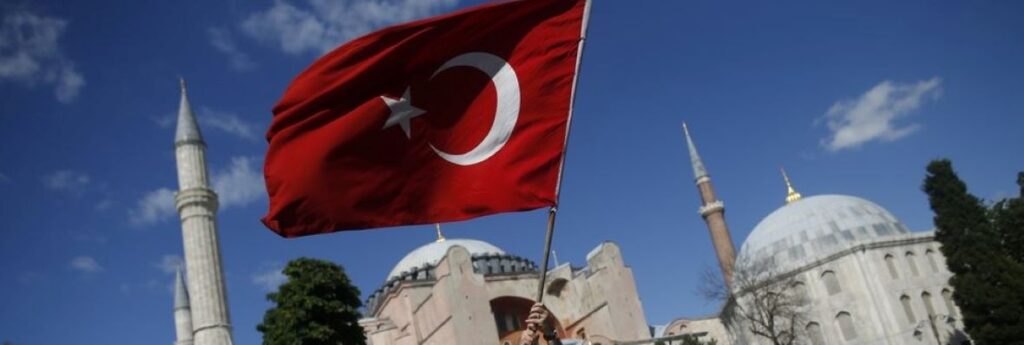Visitors will still be welcome at the Hagia Sophia in spite of Turkey’s most popular museum being converted into a mosque, says the country’s president.
On Friday, Recep Tayyip Erdogan formally converted the 6th-century World Heritage Site in Istanbul back into a mosque and declared it open for Muslim worship, hours after a high court annulled a 1934 decision that had made the religious landmark a museum. First prayers are scheduled for July 24.
“Like all of our other mosques, the doors of Hagia Sophia will be open to all, locals or foreigners, Muslims and non-Muslims,” Erdogan said rejecting the idea the decision ends Hagia Sophia’s status as a structure that brings faiths together.
The move to convert the museum – a former Christian cathedral built under Byzantine Emperor Justinian – has been condemned across the globe, and by Christians in Turkey.
In Paris, the United Nations cultural body, UNESCO, said it deeply regretted the decision. “Its status as a museum reflects the universal nature of its heritage, and makes it a powerful symbol for dialogue,” said Director-General Audrey Azoulay.
The famous terracotta-hued structure with its cascading domes represents a unique blending of cultures. The main seat of the Eastern Orthodox church for centuries, the Hagia Sophia was turned into a mosque, including adding four minarets, after Istanbul’s conquest by the Ottoman Empire in 1453. Inside it features uncovered ornate marble and mosaic decorations depicting Jesus, Mary and Christian saints.
For the last 86 years the historical attraction has been a museum, attracting 3.7 million visitors in 2019.
Some Islamic prayers have been held in the museum in recent years and in a major symbolic move, Erdogan recited the opening verse of the Quran there in 2018.
Erdogan had spoken in favour of turning the hugely symbolic site back into a mosque despite widespread international criticism, including from US and Orthodox Christian leaders, who had urged Turkey to keep its status as a museum symbolizing solidarity among faiths and cultures.
The debate hits at the heart of Turkey’s religious-secular divide. Nationalist and conservative groups in Turkey have long yearned to hold prayers at Hagia Sophia, which they regard as part of the Muslim Ottoman legacy. Others believe it should remain a museum, as a symbol of Christian and Muslim solidarity.
“It was a structure that brought together both Byzantine and Ottoman histories,” said Zeynep Kizildag, a 27-year-old Turkish social worker, who did not support the conversion. “The decision to turn it into a mosque is like erasing 1,000 years of history, in my opinion.”

